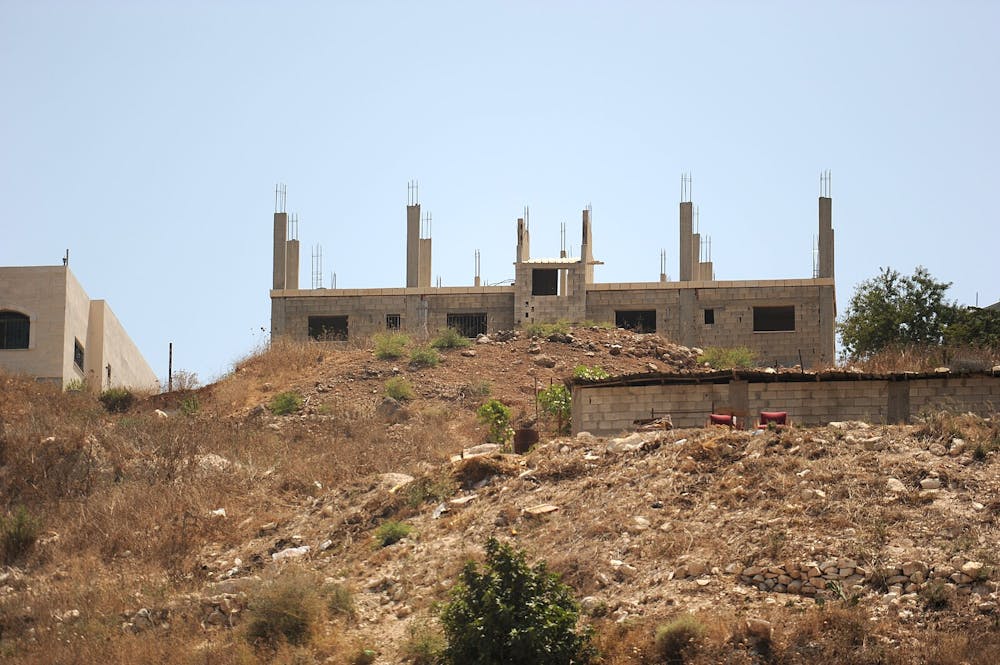By Paige Gould
Staff Writer
Israel launched a raid of the occupied West Bank on Aug. 28, targeting the cities of Jenin, Tulkarem and Tubas. These are called flashpoint cities due to Israel’s military presence.
According to Reuters, escalation in the occupied West Bank was triggered by the heightened tensions with Iranian-backed Hezbollah in southern Lebanon. The Palestinian Red Crescent Society reported that four people were killed by the Israeli forces in the Far’a refugee camp in Tubas.
AP News reported that Israel killed Ismail Haniyeh, Hamas’ top negotiator for cease-fire talks, in Iran due to Israel’s pledge to kill Hamas leaders responsible for the Oct. 7 attacks.
Reuters reported, “The war began on Oct. 7 when Hamas militants stormed across the border into Israeli communities. Israel says the militants killed more than 1,200 people, mostly civilians, and took 253 into captivity in Gaza. The official Health Ministry count as of Thursday, Aug. 15, was 40,005 Palestinians dead and 92,401 wounded.”
In Jenin, three people were killed by the Israeli military when an Israeli drone struck their car in a village close to Seir. According to Al Jazeera, the car was engulfed with smoke from Israeli bombardment, and it was later reported that a high-ranking Hamas militant leader was killed. The Israeli military later claimed 20 other lives since Aug. 28, including what the Israeli Army claims were 12 Palestinian fighters. AP news reported that Israel said its soldiers are battling with Hamas and other groups with an increasing death toll.
Masoud Naaja is a father of the two young men who were murdered during the attack. He said, “in seconds, very fast, we felt like something came down on us from the sky and there was an explosion. When I put my hand on my chest, it was full of shrapnel and blood.”
The Palestinian Ministry of Health said Israeli troops barricaded Jenin’s main hospital to block off earth mounds to prevent Palestinian fighters from seeking refuge. The Palestinian Red Crescent Society elaborated on the fact that their teams were blocked off from reaching the injured, thus preventing ambulances from entering Tubas because the Israeli military forces refused entry of medical personnel to treat the wounded.
Nida Ibrahim, Al Jazeera’s TV correspondent based in the occupied West Bank, reported that the Israeli forces explain this military operation as, “[being] the largest operation of its kind in the North of the occupied territory since 2002.”
“In the past few weeks, we’ve seen an intensification in the use of aerial strikes against Palestine fighters … the Israeli military claiming they are combatting the use of IEDs [improvised explosive devices],” Ibrahim said.
With the recent escalation, there is a greater pressure from the United States to negotiate a ceasefire between Hamas and Israel to prevent the continuation of violence.
According to Reuters, Vice President Kamala Harris, currently running for president, said in a statement that “[there needs to be] a hostage deal… and we need to get a ceasefire done now."
After Aug. 28, this escalation in brute military force from Israel has emboldened Israeli settlers to launch impromptu attacks on Palestinian land owners in an effort to push them out of their own homes in the occupied West Bank.
In response to reports of Israeli settler violence, the U.S. announced more sanctions on Israel. One of the groups responsible for the rise in settler violence, as Al Jazeera reports, is called Hashomer Yosh. Hashomer Yosh describes itself as an association that aims to protect Israeli farmers in the occupied West Bank and receives funding from the Israeli government according to the Jewish Telegraphic Agency.
As AP News reported, the spokesperson for the U.S. Department of State, Matthew Mills, said, “Extremist settler violence in the West Bank causes intense human suffering, harms Israel’s security, and undermines the prospect for peace and stability in the region [and] it is critical that the government of Israel hold accountable any individuals and entities responsible for violence against civilians in the West Bank.”
According to Al Jazeera, Jenin's roads are destroyed, and basic services like water and electricity are scarce, leaving Palestinians in a dire situation. Bashir Mataaen, director of public relations and media for the Jenin municipality said, “parts of the central vegetable market in the city were set on fire by occupation forces.”
The Israeli Minister of Foreign Affairs has called for a "temporary evacuation" of Palestinians from the occupied West Bank, while Hamas and Israel continue to blame each other for failed hostage and ceasefire negotiations.







